Note: this was first posted May 23, 2025 www.ministryaiandi.com
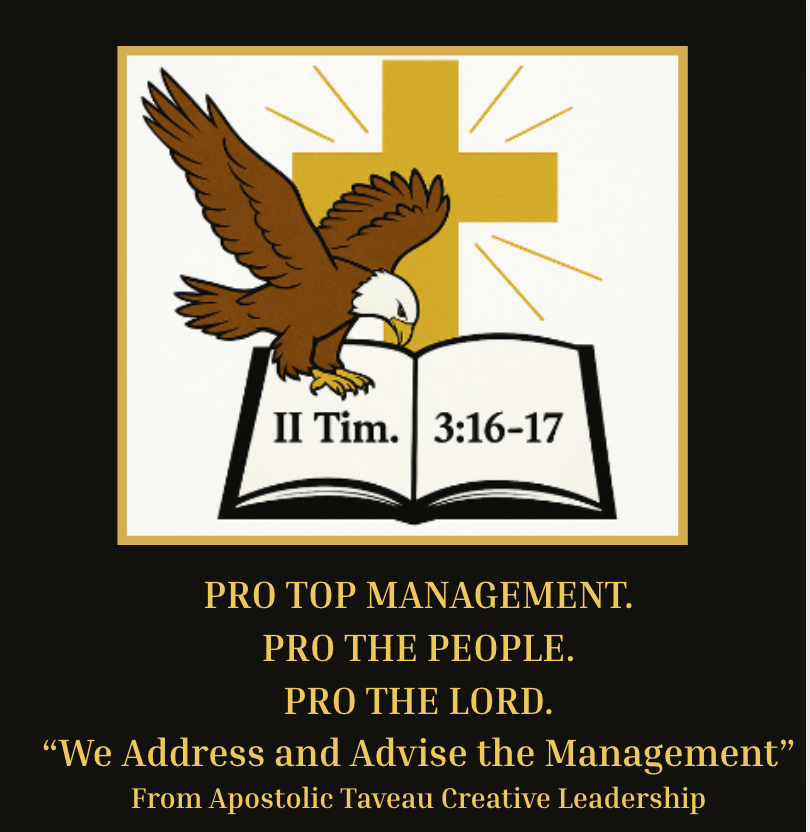
PART 2 DOCTRINES MATTER
Q. SHOULD CHRISTIAN MINISTERS SMOKE MARIJUANA?
(C)2025 Taveau D’Arcy all copyrights under international copyrights laws, in conjunction with AI
“Talking to and about the Top Leader, Elders, Staff in a Recognized Ministry,Micro, Mega and to the Lay (but the Real Q. is ONLY ABOUT the Sr Pastor, Prophet,mature Apostle, Teacher, Evangelist) not addressing the lay congregation on this,
AS THE TOP LEADER IN THE CHRISTIAN MINISTRY
If they “do” it then we will assess that “that particular persons” ministry “doctrines” regard it as being “OK.”
BUT…”WOULD SERVANT LEADER JESUS DO IT?**
**TD says, “In my view, Christ wouldn’t have to go down to the corner and buy some marijuana, (or something harder)..whenever He would get really stressed, tested and dry, and/or felt like letting off a lot of steam..(this whenever) life and bills and human persons really “got to” him..
No, the Savior knew the abiding presences of peace of the most High God and His Eternal Glory Perspective. He also knew to pause, to cast his many worries and cares upon His Father, and then tap into the Father’s peaceful shalom: the mighty calming, restful deluxe presence (like many tongue talking spirit filled Christians, including myself understand “HOW”) No, Jesus would to get rid of the pressure and battle fatigue by pressing into the Comforter, the Holy Spirit, in God given opportunity of prophetic rest.
(Note: This is still possible right now, apart from natural, or synthetic plus any illegal substances, yet most of the Church is clueless about it, and are convinced that “it passed away with the First Apostles” More later on this) And mostly “praise and worship” of certain long styles bring the “anointing onto the worship music” and it touches, relaxes, heals and builds up many many people.
MY WELL THOUGHT OUT (+ BACKSTORY) FOR THIS
“Prophesying “under the anointing” “glory” cloud” OR “what??

YOUR, MY DOCTRINE:
To Overseer TD …
Our Life “doctrine” is our own individual “moral infrastructure.“
As It’s the place that spawns many choices, the seat of our morals,my/your conscience, the place of ongoing roles of authority, parental, pastor, ministry, business…and it holds the invisible “roots” for each of our many “actions.”
PERSONAL EXPERIENCE: First of the year, Jan 2022 …Following leaving a big dysfunctional ministry, I began to feel a tug in my spirit about possibly them “prophets” smoking MJ. And I kept getting that as as recurring thought. And I wondered about it. I dawned on me that this actually a RIGHT TOPIC nearly world wide.
And It came to me that due to USA legality, morality and lack of deep solid core Christian teaching, Bible based with NO HOLY FEAR OF LORD these days, I felt is being given to me as a “word from the Lord” (got this for quite a while starting Jan 2022 on),
I frankly pondered: What if the even some of the “Big Ones” the mighty ones who pray for us, prophesy, are the apostles, prophets over a move do this and I am there ALLOWING THEM to “lead me” “minister to me” “to pray for me “ “to impart and lay hands on me conceivably” and to “have last say, spiritual authority over me” if, when, as they are OFF.
And would I feel led to “support them” if I felt they are living “less than” the tradition Jesus Christ hero role model?
 Dr T says,
Dr T says,
“How YOU and I each agree and DISAGREE, displays not just our own individual “doctrines’ but also our “character” and how conformed it is to the “Word made Flesh” the Messiah Christ, who is revealed in the says of the Holy Bible. PS plus Self Government”
And “many hearts (might) be revealed” just like the time of Jesus’ coming forth.


Talking to the deep committed Christian. All must hear the Lord about it for themself.
Also, This is not about “medical marijuana” (unless you’re rationalizing to “get” to use it)
Part 1: Christian Leaders & Marijuana: Discernment Without Accusation
“Test everything; hold fast what is good. Abstain from every form of evil.”
—1 Thessalonians 5:21–22
In today’s world, marijuana use is legal in many regions. Some Christian leaders—pastors, prophets, and stage ministers—have quietly adopted its recreational use. This post isn’t here to accuse, but to help evaluate. It’s not about condemnation; it’s about clarity, trust, and protecting the Body of Christ.
1. Accusing NO, Evaluating YES
Jesus didn’t come to condemn the world (John 3:17), and neither should we. But He did teach us to know people (and this includes office sr top ministers, their staff, elders, lay) by their fruit (Matthew 7:15–20). In other words, spiritual evaluation isn’t judgmental—it’s responsible.
Especially when it comes to those we entrust with our spiritual care—those who lay hands on us, give us prophetic words, or preach the Word—we need to ask questions:
-
Does this person walk in holy fear of the Lord?
-
Are they sober-minded and spiritually clear?
-
Is their lifestyle consistent with the New Testament pattern?
We’re called to discern spirits (1 John 4:1), not to blindly follow.
2. Is Smoking Marijuana Like Drinking Wine?
This is a common question: Is marijuana any different than a glass of wine?
Here’s the distinction:
-
In 1 Timothy 5:23, Paul tells Timothy to drink a little wine for his health.
-
Ephesians 5:18 warns: “Do not be drunk with wine… but be filled with the Spirit.”
Wine, in moderation, was culturally normal in the Bible. But drunkenness—and any impairment—was clearly forbidden.
Now consider marijuana:
-
It doesn’t take much to alter mood, thinking, or awareness.
-
THC (tetrahydrocannabinol), the psychoactive ingredient, affects perception, judgment, and clarity—which are essential for any minister speaking on behalf of God.
A pastor, prophet, or teacher must be clear, discerning, and accurate in the Spirit. THC can interfere with that.
3. Choices: Freedom in Christ vs. Rationalizing Behavior
Yes, we are free in Christ. But Christian liberty isn’t a license for indulgence. Paul writes:
“All things are lawful for me, but not all things are helpful.”
—1 Corinthians 6:12
Freedom in Christ means:
-
Walking in the Spirit (Galatians 5:1, 16)
-
Avoiding legalism and compromise
-
Living in ways that edify the body and bring glory to God
Some say, “It’s legal now, so why not?” But legality doesn’t mean morality. We must ask: Is this being used to escape stress, or is it replacing prayer, casting cares on the Lord, or seeking His peace?
4. What About A Minister Smoking Marijuana the basic Office Principles of the First Church? (And Book of Acts)
Let’s go back to the Book of Acts:
-
Believers were sober-minded and Spirit-led.
-
They fasted, prayed, and feared the Lord (Acts 2:42–47).
-
There was no mention of external substances to “enhance” worship or prophecy.
***Mega Key Point
Their minds were not altered—but renewed (Romans 12:2). Their power, peace, comfort and big confidence was in God’s presence, not in any chemical**
Yet, who teaches this presently? .
5. Why Does This Matters for Laypeople (when they attend a fellowship, church)
When you sit under someone’s ministry, you are spiritually vulnerable. You open your heart to receive counsel, teaching, and impartation. That trust deserves transparency, holiness, and sobriety.
Ask yourself:
-
Can I trust this person’s discernment?
-
Is this leader clearly led by the Holy Spirit—or dulled by substances?
-
Is there any deception, mixture, or unaddressed compromise?
This isn’t about being religious—it’s about being discerning in an age of great mixture.
TD thinks about: A stoned person ministering to YOU …by laying on hands, casting out devils, given YOU a timely prophetic word ? leading the youth, children? (All of which involves “transference?)
Final Thought: Holiness Still Matters
God is merciful, and we are not called to nitpick or shame others. But holiness hasn’t gone out of style. For those called to the office of ministry, there is a higher standard (James 3:1).
Marijuana may be legal.
It may be common.
But is it holy?
Is it wise?
Is it Christlike?
“Let us cleanse ourselves from all defilement of flesh and spirit, perfecting holiness in the fear of God.”
—2 Corinthians 7:1
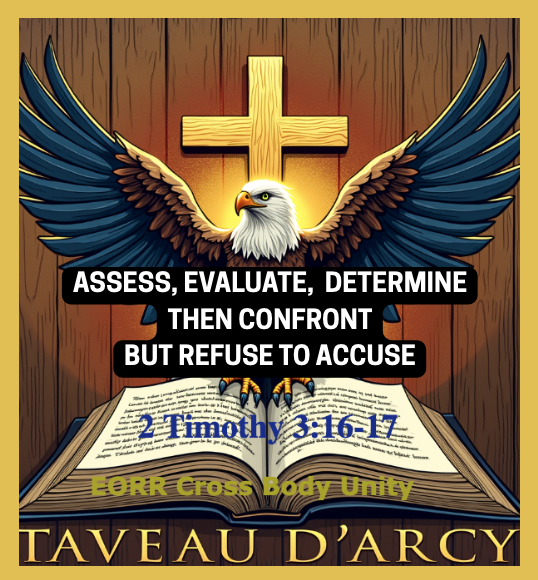
Part 2: We Need to Be Objective: How I Feel About it: Is is Accusing? Narrow Minded Legalistic? or Wise Discernment, Using Caution, Evaluation?
Main Point:
Protecting Your Soul While Trusting Spiritual Leaders
When it comes to choosing who we trust in ministry—whether pastors, prophets, or spiritual leaders—there’s an important balance to strike. On one hand, we want to avoid harsh legalism—judging and condemning people over personal struggles or choices. On the other hand, we need to wisely evaluate leaders to protect our souls and spiritual growth.
What Is Legalism?
Legalism is a rigid, unforgiving attitude that focuses on strict rules and condemns others for minor or personal issues. It often causes division and fear in the church. It says, “If you don’t do everything perfectly, you’re disqualified.” This is not the heart of the gospel, which is grace and restoration
What Is Wise Evaluation?
Wise evaluation means discerning whether a leader’s lifestyle and choices are consistent with biblical character and spiritual fruit. It involves:
-
Assessing honesty, integrity, and accountability
-
Observing whether the leader’s life encourages or hinders your faith
-
Considering if they minister with clarity, power, and humility
This is not about condemning or gossiping but about protecting your soul( whole mind, will, emotions) and spirit… and the body of Christ (1 John 4:1).
Chemicals..
THC …The Impact of Substances Like THC on Prophetic Ministry
Substances such as marijuana contain THC, which chemically affects the mind and emotions. For a prophet or minister, whose calling involves fine tuned, clear spiritual discernment and accurate words from God, this raises concerns:
-
Could their altered state cause confusion or misinterpretation of God’s message?
-
Might it lead to emotional manipulation or clouded judgment? inaccurate discernment?
-
Could it unintentionally deceive those who trust them, even if the leader doesn’t mean harm?
Because when you receive ministry—especially prophetic words—your soul and emotions are open and vulnerable. You trust the leader to be a pure channel for God’s truth.
But, many do this now…Is There Anything Deceptive or Evil?
TD says “we’re talking about the gifted top prophet, apostle, pastor, staff
Using substances like THC recreationally while ministering risks blurring the line between genuine spiritual leading and personal influence or chemical effects. This can cause unintentional deception or spiritual confusion, which the Bible warns against (2 Corinthians 11:13-15).
It’s not necessarily “evil” in the sense of intentional sin, but it is a serious matter because it affects the purity and trustworthiness of ministry. A leader under chemical influence may unknowingly mislead or open people to false impressions
Final Thoughts
-
Avoid legalism: Don’t rush to judgment or condemnation over struggles.
-
Practice wise evaluation: Protect your soul by choosing leaders who live with integrity, clarity, and holiness.
-
Remember your responsibility: Test the spirits and the fruit of ministry (1 Thessalonians 5:21; Matthew 7:15-20).
-
Pray for discernment: The Holy Spirit will guide you in trusting the right leaders.
POINT: Your spiritual health matters. Choosing leaders wisely helps you grow strong in faith and avoid spiritual harm.
PART 3 Bible: The Nazirite Vow & the Call to Spiritual Sobriety
TD “Please note, until just a few years back, I used to assume that this Nazirite vow was a requirement for every Christian. But when took the time to research, I realized that it is “God called” for the individual to do it or not ..means that it is “between, him, her and God to live this. Also this involves fermented grapes. Not hard liquor or marijuana, similar.
So live like this latter” I was raised by kind professional Christian family tee totalers from way back, but grew up and can have wine but as addictions run in my family I am careful, a legalist. I can have wine on rare occasions, but not more than 1-maybe rarely 2 glasses at tops. (also I fall asleep) Frankly, actually the biggest my side of the family “issue’ is sugar a sweet tooth “celebratory foods”…as I come from very happy celebrative, eating, ministry family. So I have to list “comfort foods” (“carbs” stress eating) has been my historical life temptation, (PS an FYI men have NEVER EVER been my ‘temptation” either (sorry gossips) NOTE: I suppose that is partially WHY God has given me a “human’s ministry” to Christian MEN and also WOMEN.

PS Or to some it’s SHOPPING!!
Ministry Consecration vs. Compromise
“Speak to the Israelites and say to them: ‘If a man or woman wants to make a special vow, a vow of dedication to the Lord as a Nazirite…’”
—Numbers 6:2 (NIV)
In a day when spiritual mixture is increasing, and lines between holy and common are blurred, let’s revisit the Nazirite vow—not as legalistic law, but as a timeless pattern of deep dedication and personal holiness.
1. What Was the Nazirite Vow?
The Nazirite vow (Numbers 6) was a voluntary commitment (not a Levitical law) made by a man or woman to set themselves apart for the Lord for a season (or a lifetime). Three major requirements defined it:
-
No consumption of wine or strong drink (no grape products at all)
-
No cutting of the hair
-
No contact with dead bodies (ritual cleanliness)
It symbolized complete consecration. Famous Nazirites include:
-
Samson (Judges 13)
-
Samuel (1 Samuel 1)
-
John the Baptist (Luke 1)
Each had a prophetic role and was called to live apart from the culture of their day—even when others didn’t understand it.
The Nazirite Vow: History, Meaning, and Its Modern Relevance
The Nazirite Vow
The Nazirite vow is an ancient biblical practice described in Numbers 6:1-21. A person who took this vow set themselves apart to God for a specific period, dedicating themselves to heightened holiness and separation. The vow included three main commitments:
-
Abstaining from wine, strong drink, and any grape products.
-
Avoiding cutting their hair.
-
Avoiding contact with dead bodies.
Historical Context and Purpose
-
Nazirites were consecrated to God for special purposes—sometimes for a lifetime, other times for a set term.
-
This vow symbolized purity, dedication, and self-control (e.g., Samson, Samuel, John the Baptist had Nazirite aspects).
-
It was a voluntary act of devotion, not a legalistic requirement for all believers.
The Value of the Nazirite Vow Today
-
While Christians are not bound to take Nazirite vows, the principles of dedication and self-discipline remain valuable.
-
The vow models a life set apart, calling believers to holiness and careful stewardship of their bodies (1 Corinthians 6:19-20).
-
It encourages reflection on habits or substances that might hinder one’s spiritual clarity or calling.
Nazirite Vow and Marijuana Use
-
The vow’s prohibition of intoxicating substances parallels concerns about marijuana’s effects on the mind and spirit.
-
Choosing to abstain from marijuana can be seen as a modern expression of the Nazirite commitment to spiritual clarity and purity.
-
However, not taking such a vow is not sinful or condemnable—it’s a personal, Spirit-led decision.
Grace Over Legalism
-
The New Testament emphasizes freedom in Christ, not binding legalistic rules (Galatians 5:1).
-
The Nazirite vow is a voluntary act of consecration, not a measure of Christian maturity or holiness.
-
Believers are called to live by the Spirit’s guidance, not strict external rules.
Conclusion
The Nazirite vow offers a biblical example of dedication and self-discipline that can inspire believers today. While it is not a legalistic requirement, it challenges Christians to consider how their choices—like marijuana use—affect their spiritual walk and ministry clarity.
Reflection Questions:
-
What personal disciplines help me stay spiritually clear and dedicated?
-
Could adopting a Nazirite-like mindset benefit my walk with God?
-
How can I balance freedom in Christ with responsible stewardship of my body and ministry?
2. Modern Meaning: Not Legalism, But Leadership
Note: We are not under the law (Galatians 3:13), and the Nazirite vow is not required for salvation. However, it carries prophetic significance for ministers today—especially prophets, pastors, and spiritual leaders.
This is about voluntary self-sacrifice to protect one’s spiritual clarity, witness, and calling. It’s a pattern for those who want to walk in:
-
Greater discernment
-
Deeper anointing
-
Purer motives
Just like Daniel refused the king’s food (Daniel 1), some believers today feel led to say no to things that others are free to do, because of their assignment
3. Marijuana & the Modern Top Minister: Why It Matters
Let’s bring it forward. Today, marijuana is widely legal. Yet, for a Christian minister—especially one claiming a prophetic mantle or public ministry—regular use of THC (the psychoactive part) deserves deep scrutiny.
THC affects:
-
Perception
-
Memory
-
Reaction time
-
Discernment
Ministers need:
-
Clarity of mind (1 Peter 5:8)
-
The mind of Christ (1 Corinthians 2:16)
-
To be instant in season and out of season (2 Timothy 4:2)
The Nazirite pattern suggests: “I will abstain not because I must, but because I choose to honor the Lord and guard the anointing.” It’s about honoring the Holy Spirit’s presence, not about legal rules.
4. Pharmakeia, Mixture, and Spiritual Integrity
The Bible links “pharmakeia” (Greek: φαρμακεία) with sorcery or witchcraft in Galatians 5:20 and Revelation 9:21. While this doesn’t mean every medicine is evil, it reminds us that mind-altering substances were often associated with occult practices.
This raises the question:
-
Is my clarity coming from the Holy Spirit—or being altered by a chemical?
The early Church had no mixture. Their signs and wonders flowed from obedience, prayer, and the Spirit, not substances.
5. Consecration Builds Trust
For lay people asking: “Can I trust this minister?”—this is where consecration speaks volumes.
When a minister voluntarily lays aside a liberty (like marijuana) for the sake of:
-
Spiritual focus
-
Holy fear
-
Clear discernment
-
Clean representation of Christ
…that builds trust.
6. This Is Not About Condemnation
If you’re a leader who has used marijuana, this is not a word of shame—it’s a call upward.
“Come out from among them and be separate, says the Lord… and I will receive you.”
—2 Corinthians 6:17
We are all in process. But if you’re ministering in the name of Jesus, ask:
-
Is this a time to make a Nazirite-like vow?
-
Could this help guard your spiritual edge, your office, and your fruitfulness?
Final Word: A Higher Call
The Lord is still calling people to a higher walk—not because they have to, but because they want to. The Nazirite vow isn’t trendy, but it is prophetic, countercultural, and fruitful.
“Therefore, since we are receiving a kingdom that cannot be shaken, let us be thankful, and so worship God acceptably with reverence and awe. For our ‘God is a consuming fire.’”
—Hebrews 12:28–29
PART 4 Wise Evaluation: Protecting Your Soul While Trusting Spiritual Leaders
When it comes to choosing who we trust in ministry—whether pastors, prophets, or spiritual leaders—there’s an important balance to strike. On one hand, we want to avoid harsh legalism—judging and condemning people over personal struggles or choices. On the other hand, we need to wisely evaluate leaders to protect our souls and spiritual growth.
What Is Legalism?
Legalism is a rigid, unforgiving attitude that focuses on strict rules and condemns others for minor or personal issues. It often causes division and fear in the church. It says, “If you don’t do everything perfectly, you’re disqualified.” This is not the heart of the gospel, which is grace and restoration.
What Is Wise Evaluation?
Wise evaluation means discerning (objectively, Biblically, morally) whether a leader’s lifestyle and choices are consistent with biblical character and spiritual fruit. It involves:
-
Assessing honesty, integrity, and accountability
-
Observing whether the leader’s life encourages or hinders your faith
-
Considering if they minister with clarity, power, and humility
This is not about condemning or gossiping but about protecting your soul and the body of Christ (1 John 4:1).
The Impact of Substances Like THC on Prophetic Ministry
Substances such as marijuana contain THC, which chemically affects the mind and emotions. For a prophet or minister, whose calling involves clear spiritual discernment and accurate words from God, this raises concerns:
-
Could their altered state cause confusion or misinterpretation of God’s message?
-
Might it lead to emotional manipulation or clouded judgment?
-
Could it unintentionally deceive those who trust them, even if the leader doesn’t mean harm?
Because when you receive ministry—especially prophetic words—your soul and emotions are open and vulnerable. You trust the leader to be a pure channel for God’s truth
Is There Anything Deceptive or Evil?
Using substances like THC recreationally while ministering risks blurring the line between genuine spiritual leading and personal influence or chemical effects. This can cause unintentional deception or spiritual confusion, which the Bible warns against (2 Corinthians 11:13-15).
It’s not necessarily “evil” in the sense of intentional sin, but it is a serious matter because it affects the purity and trustworthiness of ministry. A leader under chemical influence may unknowingly mislead or open people to false impressions.
Final Thoughts
-
Avoid legalism: Don’t rush to judgment or condemnation over struggles.
-
Practice wise evaluation: Protect your soul by choosing leaders who live with integrity, clarity, and holiness.
-
Remember your responsibility: Test the spirits and the fruit of ministry (1 Thessalonians 5:21; Matthew 7:15-20).
-
Pray for discernment: The Holy Spirit will guide you in trusting the right leaders.

PART 5 Who Can You Trust? WHOM SHOULD YOU TRUST? SOW LOVE OFFERINGS?
A Guide for Laypeople on Choosing Spiritual Leaders
When we attend church, support ministries, or receive prayer and laying on of hands, we want to be sure that those leading us are trustworthy—spiritually sound, honest, and fully committed to God. But what about when a pastor, prophet, or minister uses substances like marijuana regularly? How should we think about that
Substance Use and Spiritual Leadership: Why It Matters
Marijuana contains chemicals like THC that affect the mind and spirit. In the Bible, the Greek word pharmakia is linked to sorcery and the use of substances that alter perception. For Christian leaders, clarity of mind and spiritual discernment are essential. These leaders speak for God, guide others, and pray with authority. If their mind is clouded by drugs, it can impact their ability to hear God clearly and minister effectively.
The Question of Trust
When a leader uses marijuana or other mind-altering substances recreationally, it raises important questions:
-
Can they fully represent Christ with clarity and holiness?
-
Are they living a lifestyle that reflects the biblical call to self-control and holiness?
-
Is their ministry safe and trustworthy for those seeking spiritual help and guidance?
Breaking the Law and Addiction Concerns
Even if marijuana is legal where you live, leaders in the church are held to a higher standard (James 3:1). Breaking the law or engaging in addictive behaviors can harm their testimony and the body of Christ. Addiction can also interfere with the leader’s ability to shepherd well, stay spiritually sensitive, and maintain moral integrity.
What Should You Do?
You have the right and responsibility to protect your spiritual health. Here are some guidelines:
-
Look for consistency in a leader’s life—do their actions align with biblical teaching?
-
Observe their clarity and fruitfulness—do they minister with wisdom, love, and power?
-
Ask questions if you have concerns. A godly leader will be transparent and accountable.
-
Pray for discernment—the Holy Spirit will guide you to the right ministry.
-
Support leaders who live holy, clear-minded lives—these are the ones who can effectively lead and bless the church.
Final Thought
It’s not about judging or condemning, but about protecting your spiritual journey. The Bible warns us to test all things and hold fast to what is good (1 Thessalonians 5:21). Choosing trustworthy leaders who honor God in every way helps you grow stronger in faith and walk confidently with Christ.
PART 6 Marijuana Use Among Ministers: A Doctrine Check
Introduction
In today’s ministry landscape, many doctrines circulate—some true, some false. One issue that often goes unaddressed is the recreational use of marijuana by Christian leaders. How does this practice align with biblical doctrine? Does regular recreational marijuana use fit within the framework of true Christian teaching, or does it risk aligning with false doctrine?
True Doctrine and Holiness
-
True doctrine calls ministers to live holy, sober, and self-controlled lives (Titus 1:7-8; 1 Peter 1:15-16).
-
Scripture emphasizes the importance of sound mind and discernment, especially for those who teach or lead others (2 Timothy 1:7; 1 Timothy 3:2).
-
The call to sobriety is not only about avoiding drunkenness but maintaining clarity and spiritual sensitivity (1 Thessalonians 5:6-8).
False Doctrine and Compromise
-
False doctrine often promotes or tolerates practices that dull spiritual sensitivity or blur moral clarity.
-
Recreational marijuana use, especially regular use, can impair judgment and hinder a minister’s ability to hear from God or lead effectively.
-
When a leader relies on substances to cope or relax, it can indicate a departure from relying on the Holy Spirit, which may open the door to compromise.
Scripture Connections
-
Ephesians 5:18: “Do not be drunk with wine, in which is dissipation; but be filled with the Spirit.” This contrasts substance-induced intoxication with Spirit-led fullness.
-
1 Corinthians 6:19-20: Our bodies are temples of the Holy Spirit, to be honored and kept holy.
-
Romans 12:1-2: Offering our bodies as living sacrifices and not conforming to worldly patterns aligns with rejecting harmful habits.
-
Galatians 5:19-21 warns against works of the flesh, including behaviors that can disrupt spiritual fruitfulness.
Summary
Regular recreational marijuana use by ministers poses serious risks to doctrinal integrity, spiritual clarity, and effective leadership. While grace covers all who repent and seek God, ongoing use raises questions about alignment with true biblical doctrine, especially regarding holiness and sobriety.
Reflection Questions:
-
Does their lifestyle reflect true doctrine as a minister?
-
Are they relying on God’s Spirit or substances for peace and clarity?
-
How can I ensure my own spiritual and soul safety, of their “truths” ..and also that of my family, children in known professional ministry who appears to be self satisfied with leader, elder, staff compromise?
 PART 7 TRANSFERENCE
PART 7 TRANSFERENCE
What Is Biblical “Transference”?
Spiritual transference is the concept that something—whether power, blessing, anointing, or even sin or defilement—can be imparted from one person to another, especially through physical touch, laying on of hands, or spiritual authority.
+ Scriptural Examples of Transference
-
Laying on of Hands for Impartation
“Do not lay hands on anyone hastily, nor share in other people’s sins; keep yourself pure.”
—1 Timothy 5:22Paul warns Timothy: Be cautious in laying hands on others and in receiving from others. Why? Because there’s an impartation of more than just prayer—there is spiritual weight, influence, even responsibility.
-
Moses to Joshua – Leadership Transfer
“He laid his hands on him and gave him some of his authority…”
—Numbers 27:18–23Moses transferred authority to Joshua through the laying on of hands. This is positive transference, done in the fear of the Lord.
-
Acts 8 – Holy Spirit Given Through Laying on of Hands
“Then they laid hands on them, and they received the Holy Spirit.”
—Acts 8:17Here, spiritual power and presence is transferred as part of apostolic ministry.
-
Leviticus 16 – Sin Transferred to the Scapegoat
“He is to lay both hands on the head of the live goat and confess over it all the wickedness… and put them on the goat’s head.”
—Leviticus 16:21In the Old Covenant, even sin was symbolically transferred.
+ Why This Matters in Modern Ministry
In ministry—especially prophetic or deliverance ministry—the vessel matters.
When a minister lays hands on someone, they are not just praying. They are transferring:
-
What they carry
-
What they walk in
-
What they’ve submitted to
-
What they’ve permitted in their lives (sick, unclean spirits)
+ Marijuana, THC, and Transference Concerns
If a Christian leader regularly uses marijuana recreationally, they may be under:
-
Altered perception
-
Dulled discernment
-
Potential spiritual compromise
-
Emotional dependency on a false comforter
So when that person ministers, lays hands, or speaks a “prophetic word”, the question becomes:
What exactly is being transferred?
Is it clarity from God—or is there a fog of human reasoning, escapism, or spiritual mixture being passed on
+ Transference and the Fear of the Lord
This brings us back to holy reverence and moral sobriety in ministry:
“The fear of the Lord is the beginning of wisdom…”
—Proverbs 9:10
-
When a leader lays hands, is the Holy Spirit the one moving—or has something else crept in?
-
Would you want someone under chemical influence praying over your mind, emotions, or destiny?
Even if that leader is gifted, are they walking pure before God?
++ Summary: Why Transference Matters in This Discussion
-
Transference is biblical. It’s how the Holy Spirit moves through ministers, but also how error, confusion, or mixture can spread.
-
Lay hands with discernment. Don’t allow anyone—no matter how charismatic—to speak into or touch your life unless they’re clean before God.
-
Substance use (especially THC) can hinder discernment, dull spiritual sensitivity, and unknowingly transfer confusion or compromise.
-
This is not legalism. This is about wisdom, accountability, and the fear of the Lord in ministry.
LAST PART 8 Marijuana Use by Christian Leaders: A Reflection on Holiness, Sacrifice, and Leadership
Are They Pleasing the Lord: Historical and Biblical Foundations
Since the earliest days of Christianity, pleasing God has meant more than just words or rituals. It has involved a life of personal sacrifice, holiness, and a holy fear of the Lord—a reverent awe that shapes a believer’s every thought, word, and deed. This holy fear is foundational; it is not about being afraid of God, but about respecting His infinite purity and authority. For leaders—pastors, prophets, and ministers—this reverence translates into a lifestyle set apart, marked by honesty, moral integrity, and spiritual discipline.
The biblical call to holiness is clear: leaders are held to a higher standard because they represent Christ to the flock and to the world (1 Timothy 3:1-7; Titus 1:6-9). Their personal conduct must reflect the truth they preach. Historically, this has meant denying self-indulgence, practicing self-control, and embracing sacrifice for the sake of the gospel. It’s a path of humility, dependence on the Holy Spirit, and constant sensitivity to God’s leading.
Marijuana Use and Its Impact on Leadership Holiness
In this light, the regular use of marijuana by a Christian leader—whether pastor, prophet, or minister—raises important concerns. Marijuana is a psychoactive substance that alters perception, cognition, and often, emotional state. While some argue for its medicinal use or legalization, the question here is about recreational use and its compatibility with the sacred calling of spiritual leadership.
Once again, marijuana’s effects can cloud mental clarity and spiritual discernment, qualities essential for hearing God’s voice, giving accurate prophetic words, and shepherding God’s people wisely. When a leader’s mind is frequently influenced by such substances, it risks impairing their ability to minister with the sharpness and sobriety Scripture demands (1 Peter 5:8; 2 Timothy 1:7).
The Ethical and Moral Dimensions
Holiness involves more than personal piety—it includes the perception and confidence others have in a leader. Ministry often depends on the trust and respect of the community. If a leader’s marijuana use becomes known or evident in their ministry, it can cause doubt, confusion, or even division among the congregation.
Also: The biblical principle of not causing others to stumble (Romans 14:13-21; 1 Corinthians 8) applies strongly here.
Moreover, leaders are called to model a life of self-control (Galatians 5:22-23). Reliance on mind-altering substances can signal a lack of faith in God’s provision for peace, strength, and rest. It may substitute the peace of Christ with a chemical escape, potentially contradicting the biblical exhortation to cast cares upon the Lord (1 Peter 5:7).
Christian Cross Carrying: Sacrifice, Clarity, and the Fear of the Lord
Christian leadership requires sacrifice—taking up their cross…not only in time and energy but in lifestyle choices. The holy fear of the Lord compels leaders to maintain moral and spiritual clarity, guarding their hearts and minds as temples of the Holy Spirit (1 Corinthians 6:19-20). This clarity enables leaders to lead honestly and humbly, offering ministry that is pure, trustworthy, and effective.
In the history of the church, leaders who embodied this sacrifice inspired trust and confidence, knowing their calling was sacred and untainted. Marijuana use—if it dulls spiritual sensitivity or clouds judgment—may stand at odds with this biblical pattern.
Conclusion: A Call to Reflection and Grace
This is not a call to condemnation but a call to sober reflection. Christian leaders who use marijuana recreationally should prayerfully consider how this affects their ministry, their witness, and their relationship with God. The call to holiness and clear-headed ministry is a high calling, one that invites every leader to weigh their choices carefully.
At the same time, the grace of God covers all who repent and seek to live by the Spirit. No one is perfect, and each person’s journey is unique. However, in ministry, the stakes are high, and clarity, integrity, and the holy fear of the Lord must remain central.
Reflection Questions for Leaders and also Attending, Supporting Devout Lay Ministry Real Questions:
-
Does “the leadership lifestyle honor the sacred trust God has given me?
-
Are they relying on the Spirit or on substances for peace and strength?
-
From what I can far away evaluate, is the top leader, staff, cultivating holiness and clarity in every area of their life and with all other Bible relationships?
-
What sacrifices are they authentically willing to make in order to lead well.
(C)2025 Taveau D’Arcy All copyrights reserved under international copyright laws, in conjunction with AI



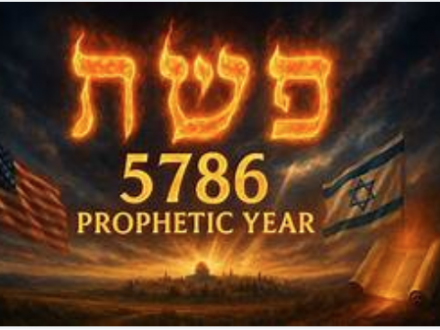


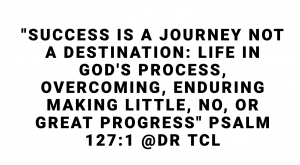












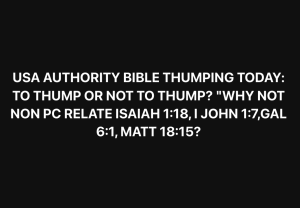
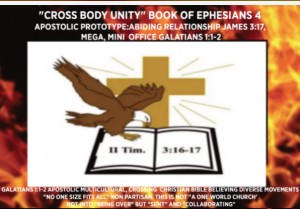
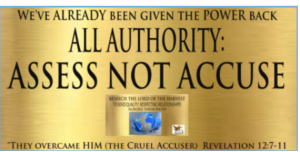

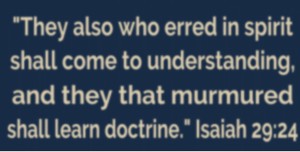

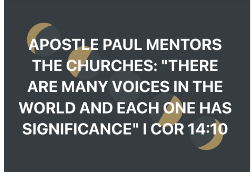

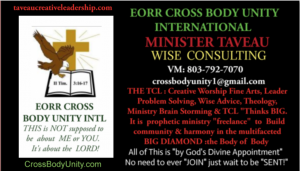









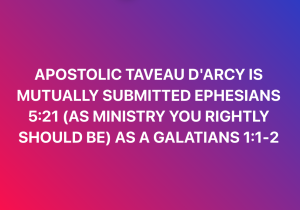



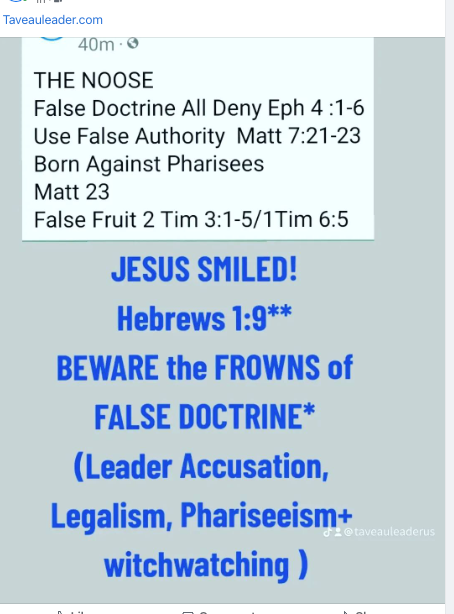

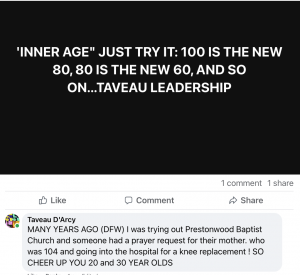




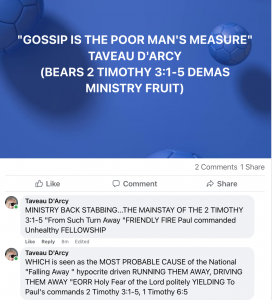
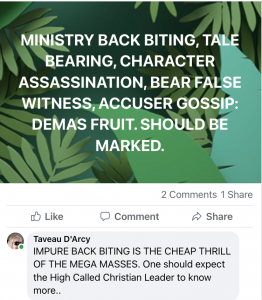
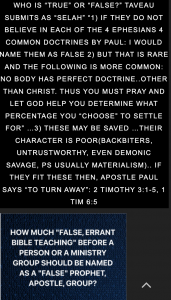
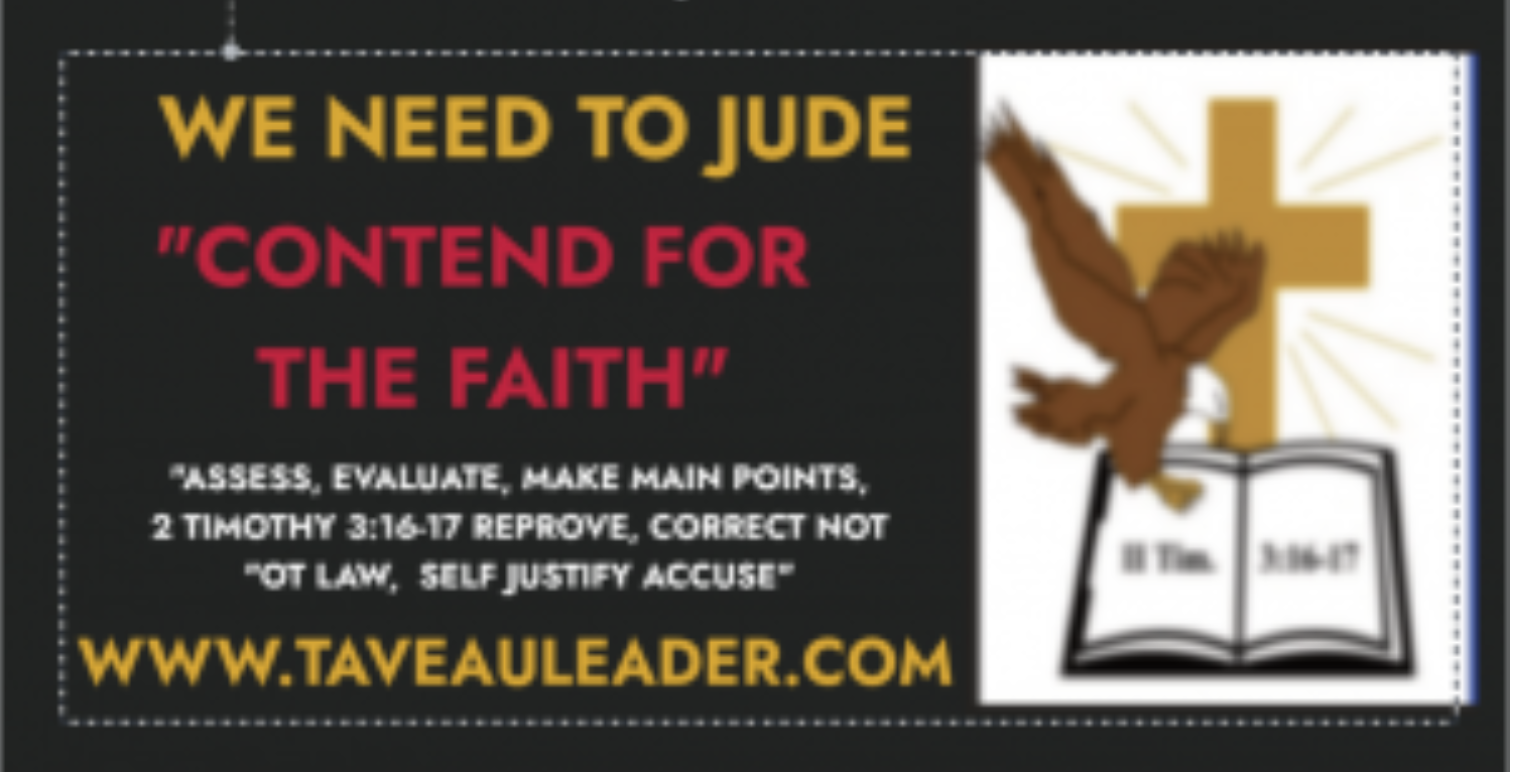
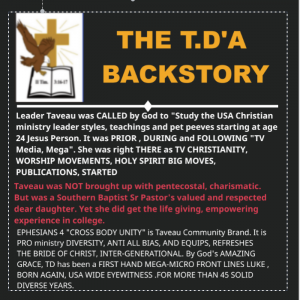



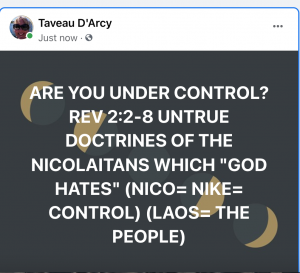
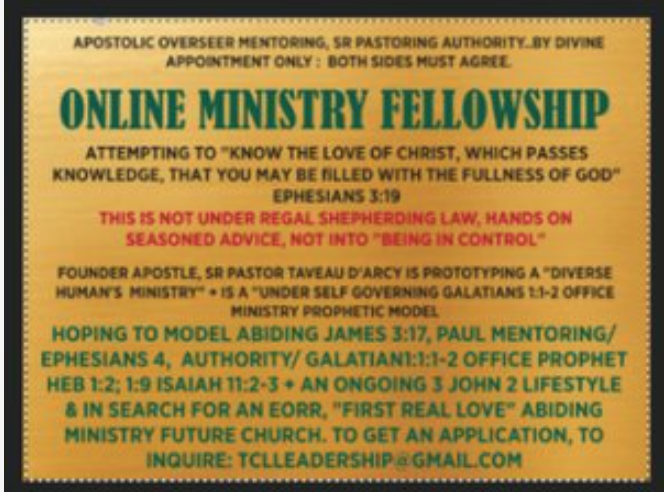


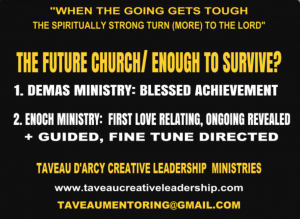






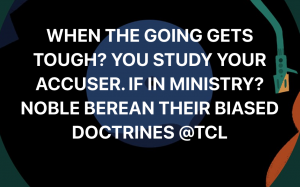








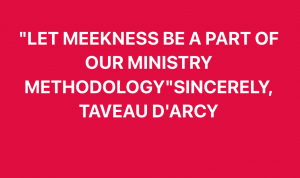













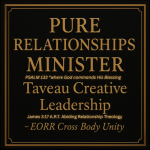







Recent Comments